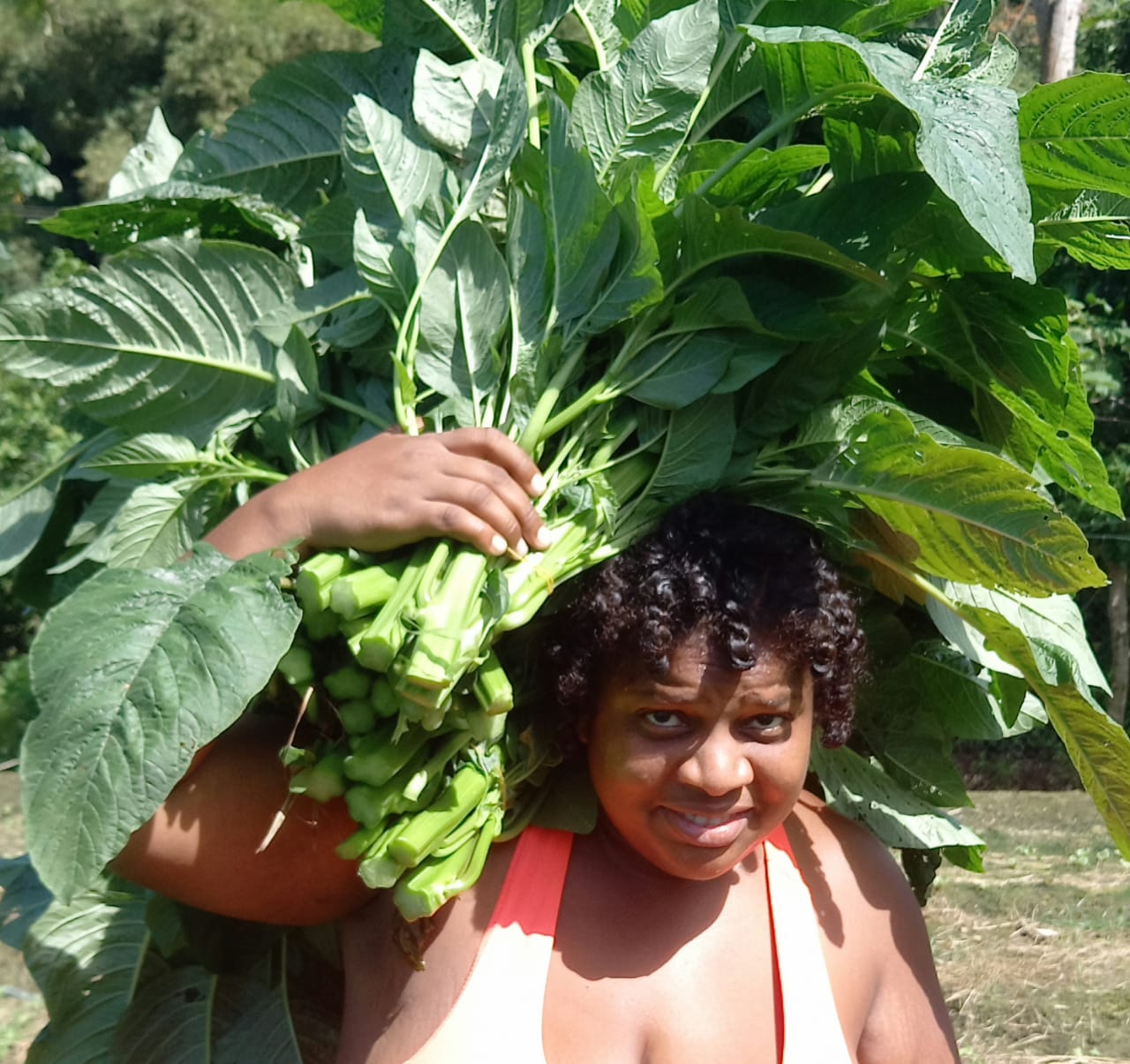
In this his/her story (HHS), we hear from two farmers from the IICA-CBF (Caribbean Biodiversity Fund) EbA (ecosystem-based adaptation) Project’s Farmers’ Caucus, Neil Gomes from Antigua and Barbuda, and Shennelle Herbert from Trinidad and Tobago, to learn about their experiences navigating increased climate risks, amidst other challenges, how they are innovating, and the interventions they will access through the project.
Antigua, in the North Caribbean - the Leeward Islands, is notoriously known for its dryness. For over 25 years, Mr. Gomes has been farming in the McKinnons area, “close to the marine part of Antigua, where there is a natural salt pond … a very important part of our sustainable development, in terms of food security,” he relates. “It was used by the people of the community to fish and harvest salt. It was a way of life for some, and it also provided a safe breeding ground for fish because of the mangrove that grew in it.” He’s noticed that the salt pond, which borders his farm, has decreased in size over the years, that it dries out frequently, and that upstream from the pond, the water is sometimes saline. Mr Gomes says that he was initially drawn to the EbA project as an opportunity to learn as much as he could about the uses of the deep-rooted vetiver grass for helping to preserve the pond’s ecosystem, in tandem with rehabilitation efforts that are ongoing through Antigua and Barbuda’s Environment Division.
Mr. Gomes plants both long term and short term crops: coconut and papaya among the long term, and tomatoes, watermelon, cabbages and onions among the short term crops. “Climate change really has affected our area over the years, in terms of storms, in terms of things that we see,” remarks Mr. Gomes. “But for me as a farmer, what I notice is that even the types of pests that come in, the verroa mite (impacts beehives) and other things like that, you find that they come more aggressively; they come more frequently. There are different types of diseases. When you think that you’ve seen it all, then there’s something else that comes up; you find that because of the dryness. The drought that we have been experiencing on and off, sometimes for as long as 5 years in a row, you find that as a farmer, I have to be innovative, and find ways to make this agriculture sustainable for both myself and my family.”
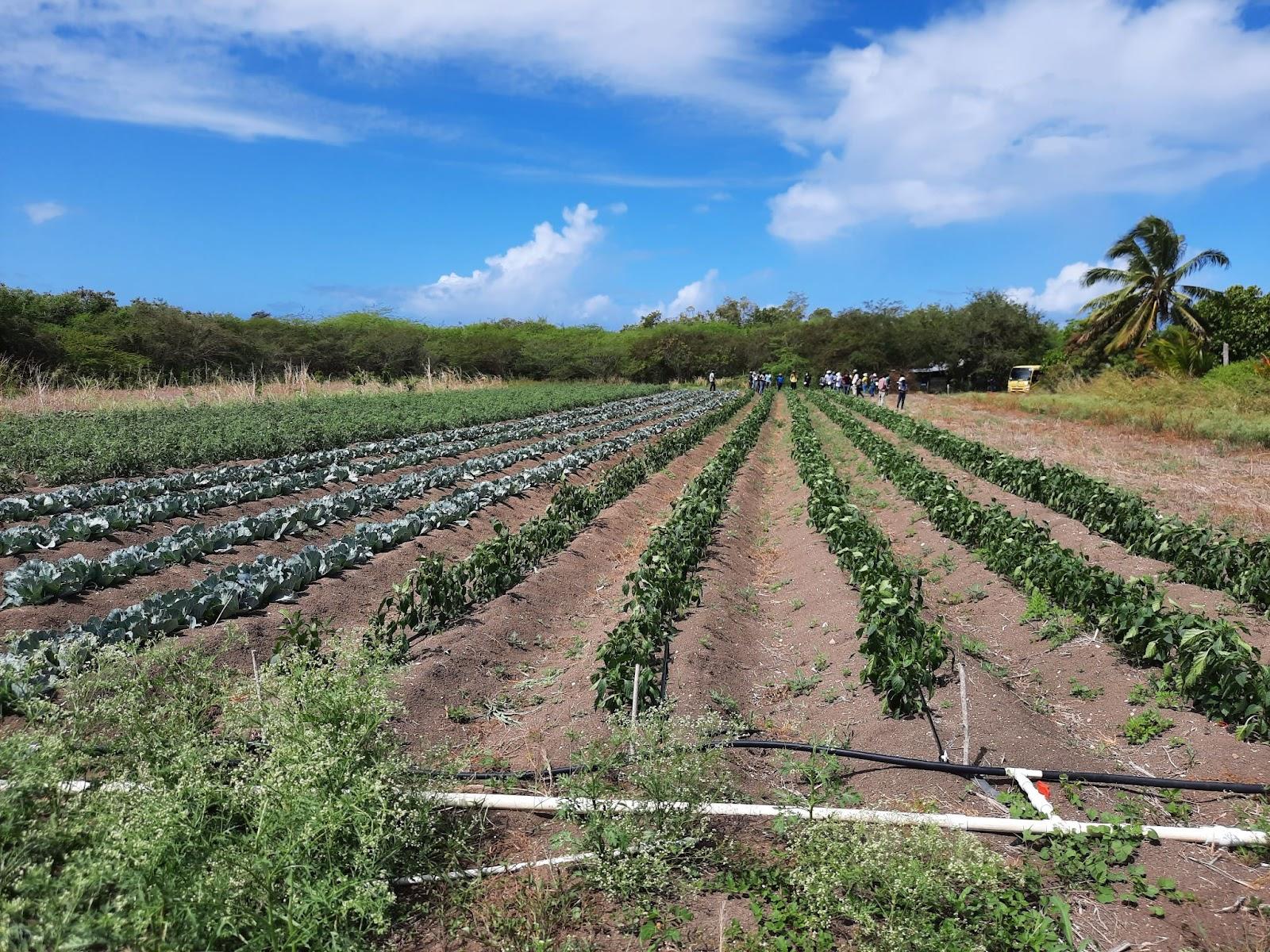
Water storage is Mr. Gomes’ chosen intervention through the project. “In Antigua, the drought condition that we have, it’s getting worse than before. What usually happens is that the government would assist in excavating ponds and dams, constructing and cleaning and so on and so forth. But the reality on the ground (literally) is that there isn’t any water!” He explains, “... I came up with the idea, instead of having the catchment in the hole in the ground, why not have the catchment above the ground in some containers. I tried it on a small scale and it worked immensely. It’s a lifesaver, and so when the project said, well how can we assist in sustainable development here, in this plot, my first thing was, assist me in getting my water capacity to a larger volume of water. If I can do that, then I can produce food.”
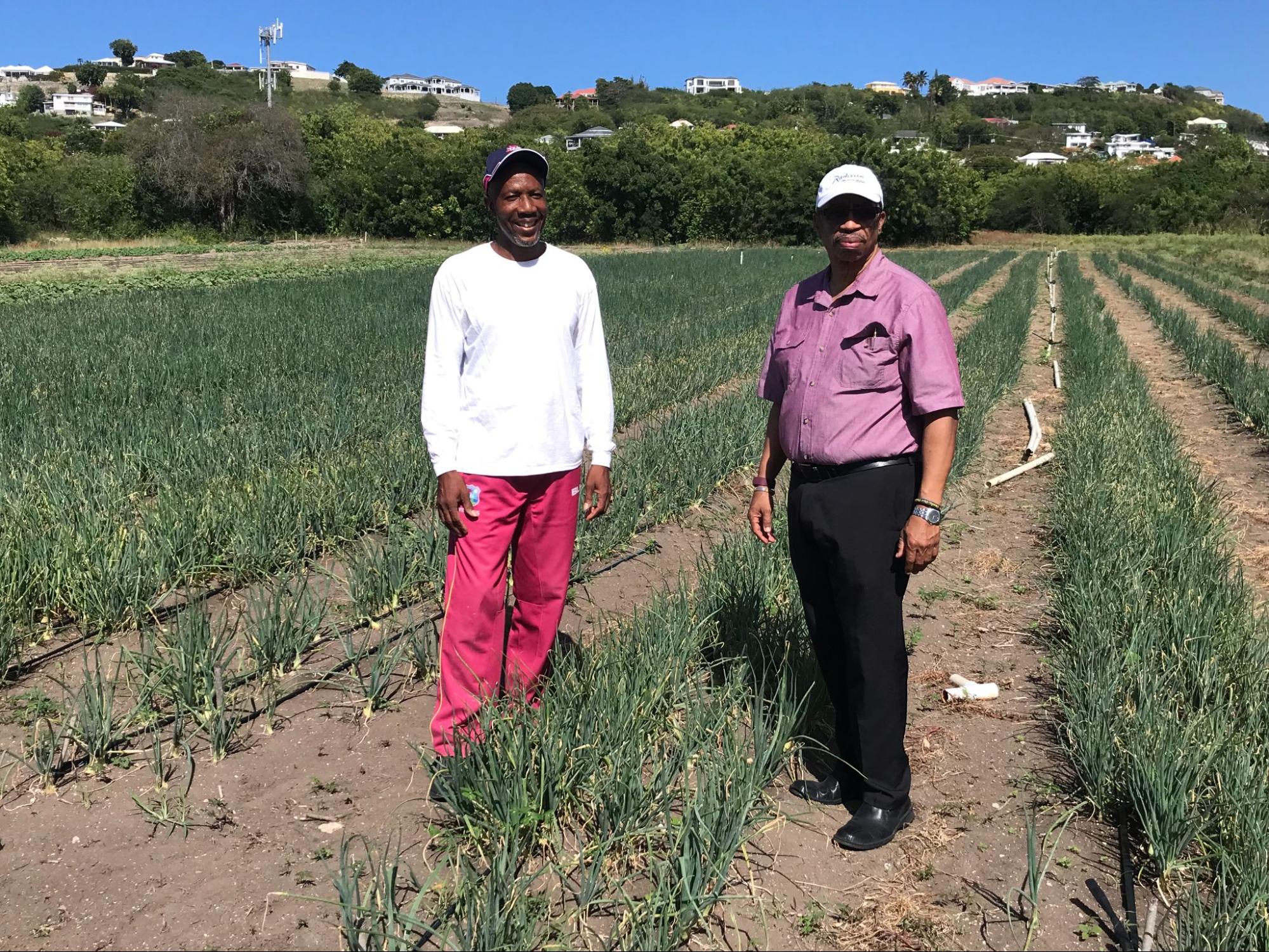
Over in Tobago, in the most Southern part of the Caribbean island chain, Shennelle Herbert is contending with the opposite problem – too much water. “Sometimes we don’t even have a dry season,” she laments. Ms. Herbert has been farming commercially, on her own, for roughly 13 years, and primarily grows bhaji, flavored peppers, cassava, and eggplant. “You know, normally farmers will plough, rotovate, bank, and stuff in the dry season… Now weather patterns are so unpredictable that you can’t even do traditional farming.” She references flooding that took place in Tobago last year (2022): “Even the older heads, the elders who are 70, 80 were like…We never see floods like that here.’ The river took a big portion out of the land. It eroded the riverbank line and went with about half of the land in the river bed.”
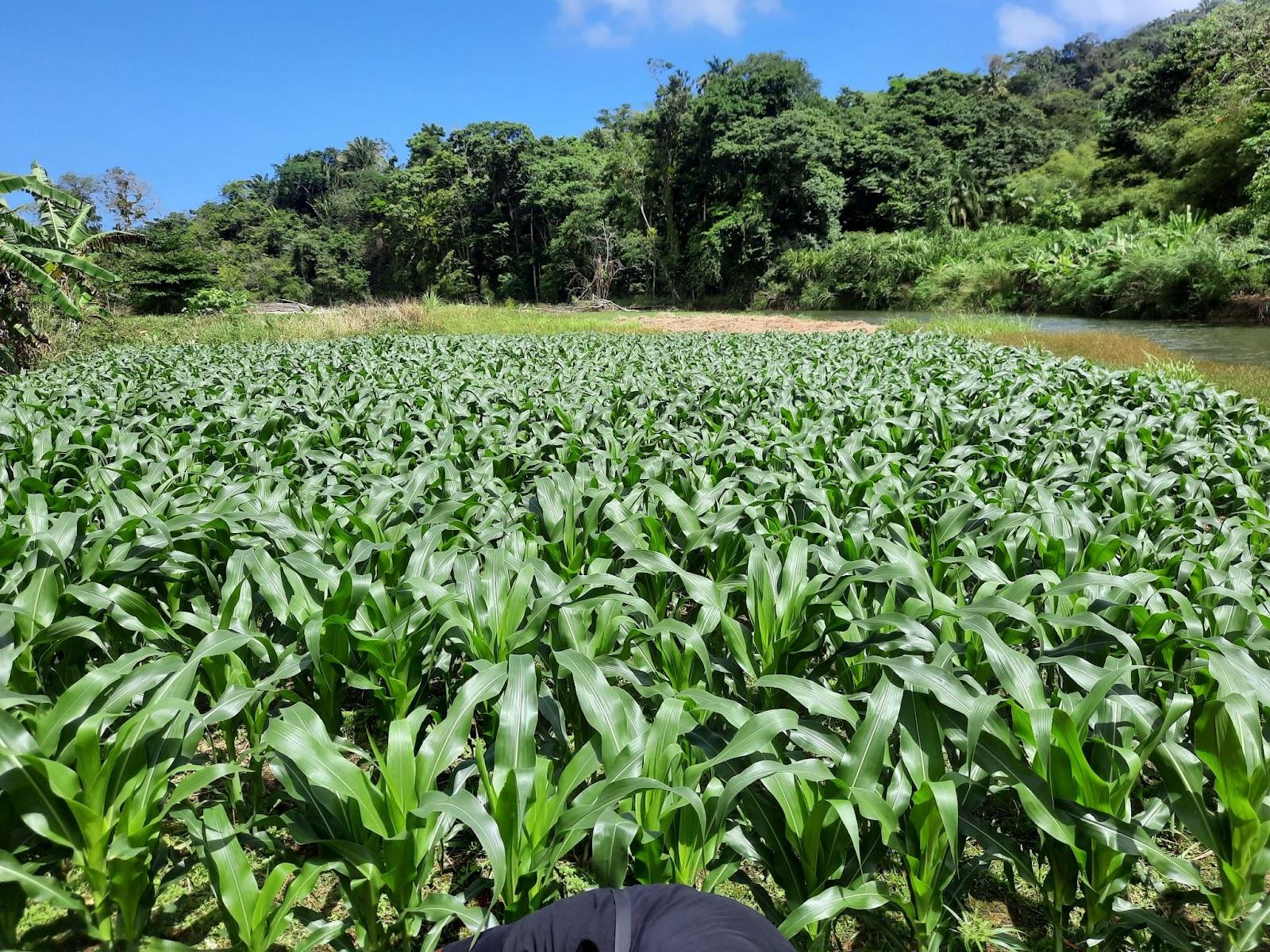
Initially, Ms. Herbert sought to improve drainage to deal with the excess water on her farm. However, after the climate smart agriculture training facilitated by the EBA project, she changed her intervention strategy: “I saw the need to go back to school to further my knowledge in agriculture to really be able to brace climate change … you have to really adapt in order to deal with all the changes that are going on.” Growing up in a farming community in Trinidad, she says that she has always loved agriculture, and when deciding what to do as a career, she followed her passion for farming. Ms Herbert says that she has faced a lot of challenges, especially as a young, female farmer: “You really have to prove to them that you are able and you are capable to do it, to execute farming duty. You know, ‘Your place is in the house, or in an office.’ I think we still have that mentality: ‘If you’re educated, you’re supposed to get a “good” job like a doctor or a lawyer’… They never really tell you, well get educated and go back into agriculture.” She sees a dire need in the agricultural industry for more training to help meet knowledge gaps.
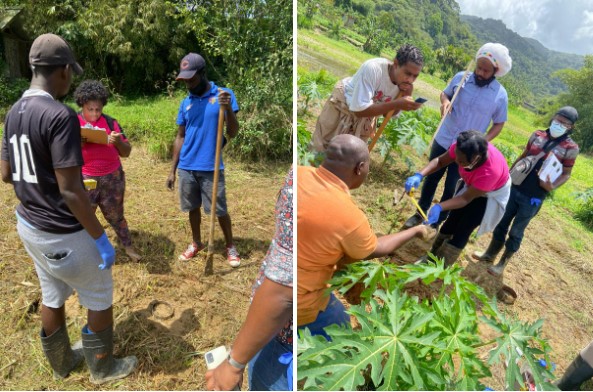
Across in Antigua, Mr Gomes notes that climate risks he faces are compounded by competition from extra-regional imports, making it essential for him to innovate: “I look for drought-tolerant, disease resistant types of crops that can at least give me a viable chance in the market. Because at the end of the day, whether I or other farmers produce it, it will come into the country. So I still have to be aware of the fact that I need to not only produce a pound of tomatoes, but I have to produce a quality pound of tomato, and in a timely manner. So, what I have tried to do over the years is to develop different techniques, different seasonal plants that I will put in, and different types of plants that I research. I try to do a lot of research in terms of our climatic conditions and what types of plants can adapt to that. I also try to do experiments with other agencies like CARDI, for example, to see what research they’ve done, and how I can piggyback on what they’re doing, and you know. I try to do things like that so that my yield would be at least optimal. I try to do it so that I can, I want to say maximize, but it’s not always possible, so, at least to have an optimum middle range of supply for the market that I have over the years been supplying.”
Both farmers also spoke about the need for improved policy in their countries with regards to agriculture. Mr. Gomes reflects that he has seen local farmers appreciated mostly during a crisis, and draws an example from our recent COVID times: “I was called into a meeting with government officials, ‘We need you guys to produce X amount because we are not sure of how the world is going to go, what will happen; We’re behind you 100%; we’ll support you in this, we’ll do this, we’ll do that; we’ll give you what you need.’ But the fact of the matter is after one year and they realize that things may go back to previous, then they start withholding the support, start importing greater volumes, and stop purchasing local and so on, so you know, we definitely need some education.” Ms Herbert corroborates the need for more local support amidst skyrocketing prices for farming implements, calling on her government to regulate their prices. In addition to this, a taste for foreign goods exacerbates the problem, according to Mr Gomes: “The Antigua and Barbuda population generally seem to think that if it is local it’s not good, because it doesn’t look as juicy and flamboyant, and the colour is not even, and the shape is out, and so on and so forth. We tend to face that type of challenge in our local market because the advertisement that comes into the country is that, ‘this is how a tomato should look, all tomatoes should look like this’, then when you eat that tomato, or you purchase that tomato, the shelf life is not as viable as the local product.”
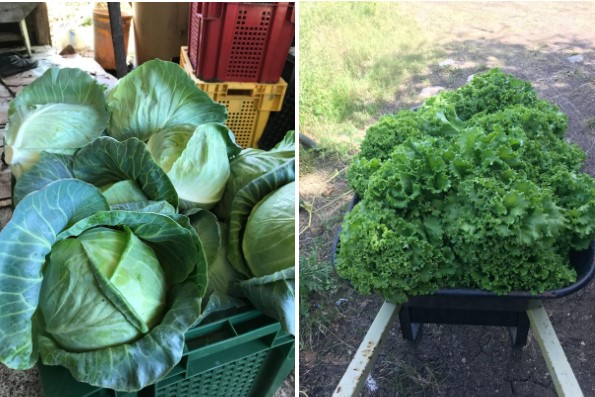
When asked about other changes that would help make farming more profitable for local farmers in Antigua, Mr. Gomes called for a perspective shift, hoping that the public can recognize the importance of farmers: “If we eat three meals a day, a farmer must be involved in those three meals every day… I think that there needs to be that platform where farmers can be seen as a very integral part of any society, and the part that we play is to keep people alive, keep them safe, keep them healthy, by producing good food for them.” Despite all the challenges she faces, Ms Herbert too, remains optimistic with increased integration of climate smart agriculture into her farming practice. She encourages other young people to take up the mantle along with her, of growing food at home for our Caribbean communities.
|
“... I think that there needs to be that platform where farmers can be seen as a very integral part of any society, and the part that we play is to keep people alive, keep them safe, keep them healthy, by producing good food for them.” |
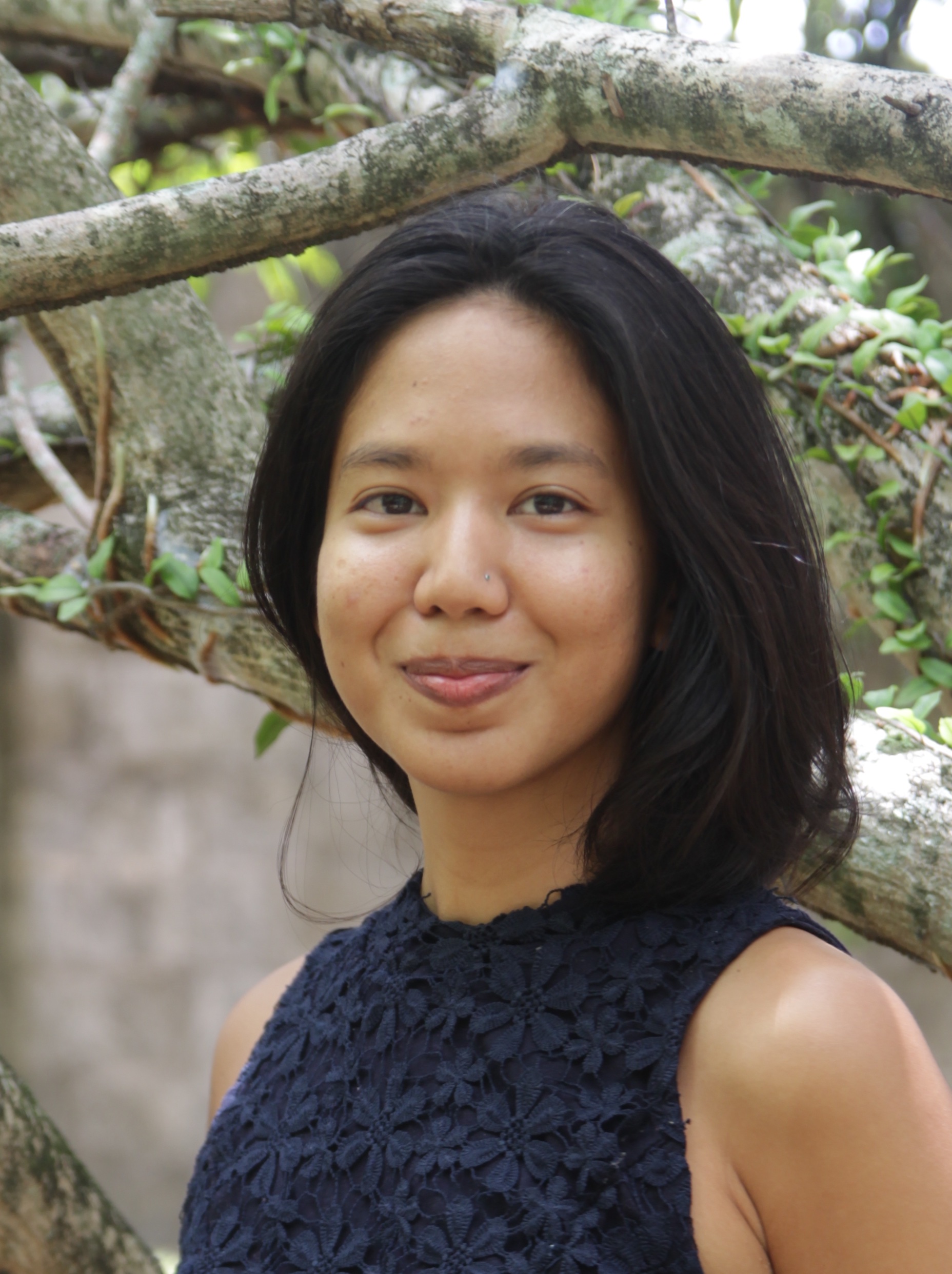 Rhonda Chan Soo is a Trinidadian documentary filmmaker and non-fiction multimedia storyteller developing a body of work dealing with contemporary issues of Caribbean identity. She earned an MA in documentary filmmaking from Wake Forest University and a BSc in Environmental Science from Furman University, and worked as a multimedia fellow with the Southern Environmental Law Center in Birmingham, Alabama in 2013 before returning home to Trinidad. Rhonda has been the Managing Director of Bird’s Eye View Productions since 2018. Her work is informed by empathy, a desire for justice and equality, and a critical practice that acknowledges her own positionality as a POC woman from the Global South. In her upcoming works, Rhonda aims to explore collective memory, identity and culture. Visit www.birdseyeviewtt.com to learn more about Rhonda’s work.
Rhonda Chan Soo is a Trinidadian documentary filmmaker and non-fiction multimedia storyteller developing a body of work dealing with contemporary issues of Caribbean identity. She earned an MA in documentary filmmaking from Wake Forest University and a BSc in Environmental Science from Furman University, and worked as a multimedia fellow with the Southern Environmental Law Center in Birmingham, Alabama in 2013 before returning home to Trinidad. Rhonda has been the Managing Director of Bird’s Eye View Productions since 2018. Her work is informed by empathy, a desire for justice and equality, and a critical practice that acknowledges her own positionality as a POC woman from the Global South. In her upcoming works, Rhonda aims to explore collective memory, identity and culture. Visit www.birdseyeviewtt.com to learn more about Rhonda’s work.
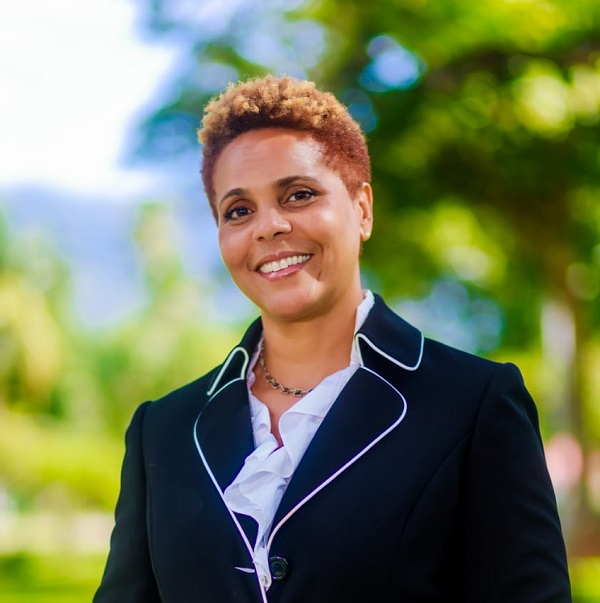 Diana Francis is a graduate of the University of the West Indies (UWI), St. Augustine – BSc. Economics (1986-1989) and Cave Hill - MPhil Economics (1993-1996). She has been working in agricultural and rural development, providing policy and trade support since 1989, at the national level through the Ministry of Agriculture in Dominica, and from 1993, at the regional level, with the Inter-American Institute for Cooperation on Agriculture (IICA). She has provided direct support to CARCOM and the OECS Secretariat, and individual Ministries of Agriculture, in formulating Agricultural Policy and Strategy, emphasizing the importance of rebuilding strong planning capacity for effective policy implementation. She has authored/co-authored a number of publications and written pieces on a range of topics in agricultural development as well as develop and manage implementation of externally funded regional projects. As the current IICA Representative in Trinidad and Tobago (from July 2019), she manages IICA’s technical cooperation activity in collaboration with a number of strategic partners in areas related to climate resilience, agricultural health and food safety, community-based agriculture and rural development, food and nutrition and importantly, providing coordinated and holistic development support to micro and small agro-processors.
Diana Francis is a graduate of the University of the West Indies (UWI), St. Augustine – BSc. Economics (1986-1989) and Cave Hill - MPhil Economics (1993-1996). She has been working in agricultural and rural development, providing policy and trade support since 1989, at the national level through the Ministry of Agriculture in Dominica, and from 1993, at the regional level, with the Inter-American Institute for Cooperation on Agriculture (IICA). She has provided direct support to CARCOM and the OECS Secretariat, and individual Ministries of Agriculture, in formulating Agricultural Policy and Strategy, emphasizing the importance of rebuilding strong planning capacity for effective policy implementation. She has authored/co-authored a number of publications and written pieces on a range of topics in agricultural development as well as develop and manage implementation of externally funded regional projects. As the current IICA Representative in Trinidad and Tobago (from July 2019), she manages IICA’s technical cooperation activity in collaboration with a number of strategic partners in areas related to climate resilience, agricultural health and food safety, community-based agriculture and rural development, food and nutrition and importantly, providing coordinated and holistic development support to micro and small agro-processors.
Note: The opinions expressed in this article are the responsibility of the authors and do not necessarily reflect the opinion of IICA.
|
If you have questions or suggestions for improving the BlogIICA, please write to the editor: Joaquín Arias |
Añadir nuevo comentario